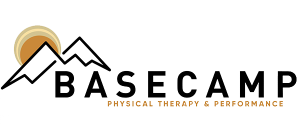Physical Therapist vs. Dentist: How to Handle Your TMJ
Many people experience TMJ on an everyday basis. Moreover, there’s not always a straightforward answer, particularly if you’re trying to avoid surgical solutions. If you were diagnosed with the disorder by a dentist but you find that their treatments aren’t resulting in relief, we’ll look at why a physical therapist in Flagstaff, AZ, may be a better professional to call.
When to Call a Physical Therapist
If you’re experiencing any of the following symptoms, a physical therapist may be able to help you reduce the pain and improve your range of motion:
Pain: This includes the stereotypical jaw pain, but it can also refer to facial pain, neck pain, or headaches.
Sounds: If you’re experiencing clicking or popping every time you open and close your jaw, a physical therapist can recommend manual exercises at home to improve functionality.
Earaches: The jaw impacts the ear, nose, and throat. You may find that your ears hurt regularly without realizing that the problem stems from damaged cartilage in the temporomandibular joint.
When you visit a physical therapist for TMJ in Flagstaff, AZ, they’ll focus on how to make your jaw stronger. It’s a conservative route that can help you avoid more drastic treatments (either now or in the future).
What Causes TMJ?
TMJ can refer to both cartilage damage or joint damage in the jaw. The temporomandibular is the connection between your body and the jaw, and it has to move constantly as you go about your daily routine. The causes are sometimes difficult to ascertain, though if you have a genetic history with it or you’ve sustained a jaw injury, this could be the culprit. Some people get TMJ if they clench or grind their teeth at night. No matter what the root cause of the problem is, though, it is important to address TMJ. The sooner you get help, the more you protect your teeth, gums, and bite.
Physical Therapy in Flagstaff, AZ
If you’ve been dealing with jaw pain regularly, call Base Camp Physical Therapy and Performance to learn more about how the right exercises can help your TMJ.






Leave a Reply
Want to join the discussion?Feel free to contribute!